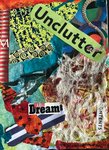

Some time ago, after suffering the shocking and unexpected loss of my still young husband, Martijn, while we were living in Europe, I experienced what is called traumatic grief. In addition to a year of intense grief counseling, I also trained and earned my certification in Presence-Based Coaching. During this period, I developed 10 simple coaching guidelines that contribute to well-being. These apply to people of all ages, but are especially useful to help us as we age, designed to keep us thriving rather than simply surviving.
1 Create quiet time each day
The Information Age and modern life have shaken us from the natural rhythms that promote balance. It takes an intentional effort to break from the intensity. Creating a place and or space to reduce the literal and emotional noise is one essential step. Simplicity is key. While adopting meditation, yoga, Qigong or other practices brings an elevated sense of peace, so too can merely breaking away from the technological onslaught by doing something quiet and or manual. Like reading a book. Having a conversation. Playing a board game with family or friends. Walking in nature. Playing or listening to music. Whatever activity or down time gives a true break from contemporary clamor will contribute to a greater sense of well-being.
2 Eat whole food and drink lots of water
The pace and “conveniences” of modernity seem to have highjacked common sense. Many of us have fallen prey unhealthy food and beverage choices. We short-circuit our health and healthcare systems by so doing. Breaking the habit of reaching for highly processed foods, including sugary drinks, can be done in increments. Replacing one sugary or salty snack with a piece of fruit or veggies is one way to start. Not buying sodas or sweetened fruit drinks in the first place helps, as does keeping fresh, filtered or bottled water within easy reach. Research proves that fast foods are actually engineered to be addictive – as dangerous as smoking cigarettes or abusing alcohol! It is not easy to end addiction but doing so can prevent the onset of diseases such as diabetes, high cholesterol and blood pressure that lead to stroke, heart disease, dementia and an overall poor quality of life. Incremental change yields big results.
3 To sleep, perhaps to dream
Everyone has a different sleep requirement and the older we get the more likely we are beset by disruptions. Getting ample sleep is critical to good health. Sleep disorders such as insomnia, restless leg syndrome, narcolepsy, and sleep apnea can cause a cascade of other health issues. However, we can control many of the impediments to getting a good night’s sleep – starting with making sleep spaces quiet, dark, relaxing and at a comfortable temperature. Next, remove electronic devices such as televisions, computers, and smart phones from the bedroom, and end screen time well before bedtime. Avoiding large meals, caffeine and alcohol before bed helps, as does using herb teas that promote good sleep. Of course, maintaining regular sleep and waking times is highly beneficial, as is getting regular daily exercise. The key is knowing what we can change and that we can change.
4 Regular body movement
There is much hype about what is the best and how to get adequate exercise. A rule of thumb that most medical experts agree with is that we should maintain some practice of regularly moving our bodies. However, we do not need extreme physical activity, which actually can contribute to problems as our bodies age and change. Medical research has shown that simply walking each day for as little as 30 minutes promotes good health. All we need is a steady and regular practice that suits our temperament and abilities. Walking helps maintain healthy weight, prevents or manages conditions like heart disease, stroke, high blood pressure, improves cardio fitness, strengthens bones and muscles, improves muscle endurance, and increases overall energy levels. For those of us in the cold climate, mall and museum walking brings it inside. Oh yes, and it helps us to get a good night’s sleep! Talk about a virtuous circle!
5 Unclutter
As night follows day, as we age we tend to collect stuff. Sometimes a lot of it. Excessive hoarding is a genuine psychological problem. The need to accumulate can be related to painful feelings and difficult experiences and extreme hoarders benefit with counseling. Yet simply living a long life means we tend to collect more. Many of us have authentic attachments to certain objects, like photos, a parent’s ring or a child’s first drawing. However, there’s truth in the old adage that less is more.
Clutter causes chaos and can actually be dangerous by causing fire hazards or blocking exits. Too many objects in one place can also add to mental confusion. I have written numerous articles about the art of curating as a way to ease through the pain of parting with objects – pairing down to treasured items to showcase. An article in “Psychology Today” cites scientific documentation about how living in clutter creates or contributes to low subjective well-being, unhealthier eating, poorer mental health, less efficient visual processing, and less efficient thinking. The advantages of streamlining outweigh simple housekeeping by elevating happiness while also benefiting physical health and cognitive abilities. Plus, your children will thank you.
6 Create and serve community
In his landmark book, “Bowling Alone in America,” author Robert D. Putnam bemoaned the shrinking tendencies of American volunteerism and civic duty, pointing out this behavior increasingly disconnects us from family, friends, neighbors, and social structures, while lessening our social capital, which depletes both individual and community well-being. Fortunately, Minnesotans’ inherent activism puts us in a different category, but we cannot take for serving our communities for granted. The truth is, that by serving community we also serve ourselves.
7 Place your friends, like your art, in the best light
Friendships represent a deep form of social capital. Unlike family relationships, which are a given, friendships must be forged and tended. Lifelong friendships so nourish our souls that the late author, John O’Donohue, titled an entire book, “Anam Cara,” a Celtic term for soul friendships, the essence of true friendship. Making and keeping lifelong friendships by investing time and energy is strong medicine.
8 Be a beginner, learn new things, open new doors
Older people are notorious for getting “stuck in their ways.” But a positive aspect of modernity is that there are so many options to keep current and to keep learning. From national programs like the celebrated Osher Lifelong Learning Institute (OLLI), to countless offerings from other, innumerable organizations. Many neighborhood schools, community colleges or centers, religious organizations, even food coops offer seminars and workshops. And, thanks to the internet, choices are countless. I keep this poem framed above my desk: “If the Angel deigns to come, it will be because you have convinced her, not by your tears, but by your humble resolve to be always beginning: to be a beginner.” - Rainer Maria Rilke
9 Respect the past, live the present, envision the future
The 1960’s Hippie rallying cry, “Be Here Now,” often has been misinterpreted. It is the balance of past, present and future that helps us thrive. As Winston Churchill is credited with saying: “Those of us who forget the past are doomed to repeat it.” The popular trope of “being present” misses the mark. As it is for learning proper grammar, we need to practice all of our tenses in order to succeed.
10 Acceptance, courage and wisdom
Can we truly shape our perspectives and make positive changes? I think so. Like all good things, it takes time and practice. But many wisdom traditions have variations of the legendary serenity prayer: “Grant me the serenity to accept the things I cannot change, courage to change the things I can, and wisdom to know the difference.” It all begins within.
Comments
No comments on this item Please log in to comment by clicking here